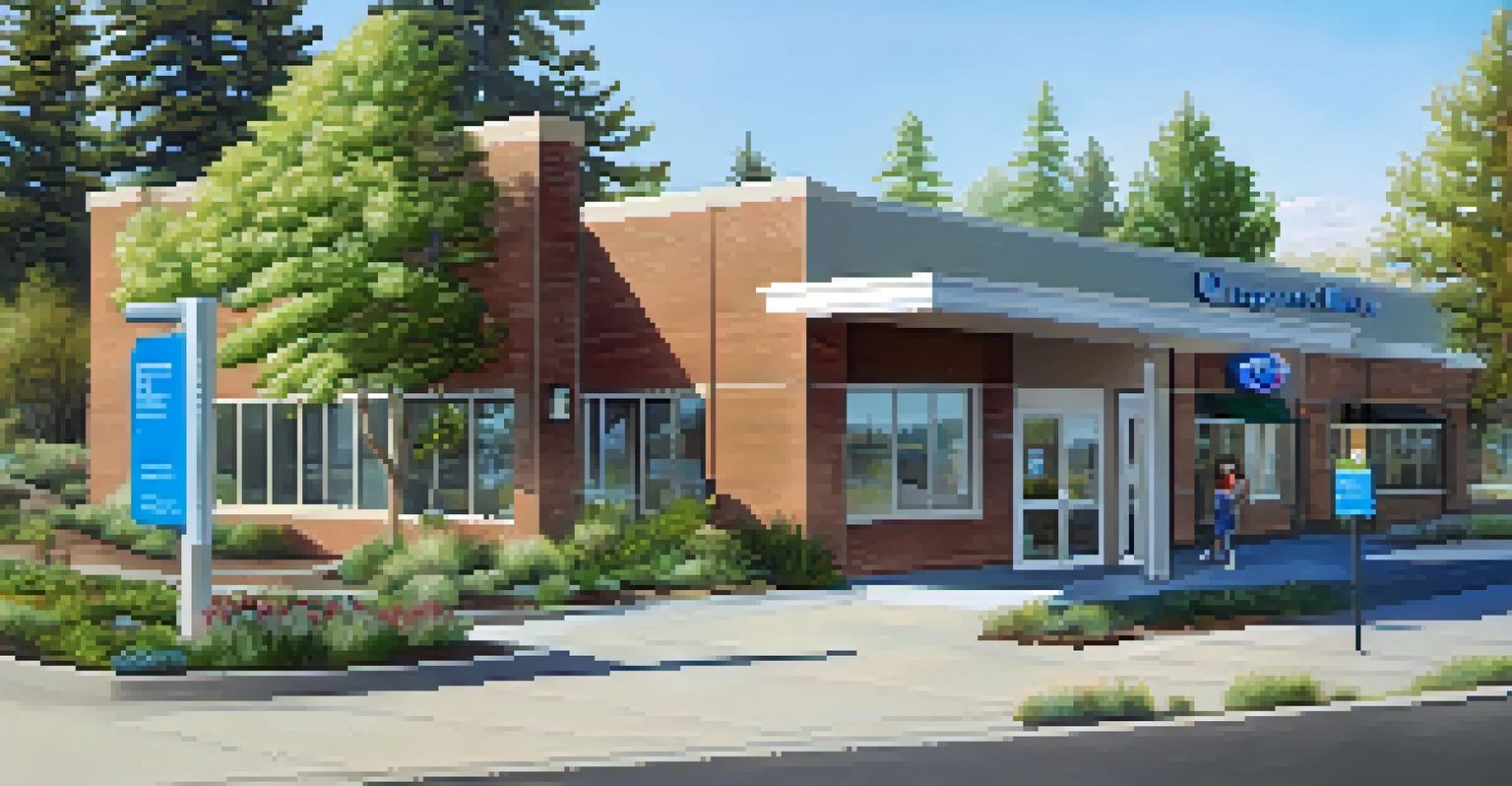Understanding Urgent Care Options in Spokane: A Guide

What is Urgent Care and When to Use It?
Urgent care centers provide immediate care for non-life-threatening conditions. Unlike emergency rooms, which are designed for critical situations, urgent care is perfect for issues like minor fractures, sprains, or infections. These facilities bridge the gap between primary care and emergency services, offering accessible treatment when you need it most.
The greatest medicine of all is to teach people how not to need it.
For example, if you have a sudden fever or a minor cut that requires stitches, an urgent care center can help you without the long wait times often found in ERs. They’re typically open after hours and on weekends, making them a convenient option for those who can’t visit a primary care provider during regular business hours. This flexibility allows patients to receive care when it's most needed.
If you're unsure whether to visit an urgent care center, consider the severity of your condition. If it’s not life-threatening but requires prompt attention, urgent care is likely the right choice. However, if you experience chest pain or severe bleeding, you should head straight to the emergency room.
Types of Services Offered at Urgent Care Centers
Urgent care centers in Spokane offer a wide range of services to address various medical needs. Common services include treatment for illnesses like the flu or strep throat, injury care such as sprains and fractures, and diagnostic tests like X-rays and lab work. This variety ensures that patients can receive comprehensive care under one roof.

In addition to these services, many urgent care facilities also provide vaccinations, physicals, and drug screenings. This makes them a valuable resource for families looking to keep their loved ones healthy. For instance, if your child needs a sports physical before the season starts, an urgent care center can often accommodate that request quickly.
Urgent Care for Non-Life-Threatening Issues
Urgent care centers provide immediate treatment for conditions like minor fractures and infections, bridging the gap between primary care and emergency services.
One key advantage of urgent care centers is their ability to handle minor emergencies efficiently. With on-site labs and imaging services, patients can often receive test results on the same day, allowing for timely treatment decisions. This swift approach can be crucial for conditions that need immediate attention but are not life-threatening.
Finding Urgent Care Centers in Spokane
When you need urgent care, locating a facility nearby is essential. In Spokane, there are several urgent care centers to choose from, each with its own specialties and operating hours. A simple online search or a quick call to your insurance provider can help you identify the closest options.
An ounce of prevention is worth a pound of cure.
Many urgent care centers also provide their addresses and hours on their websites, along with information about the services they offer. For example, some may focus more on pediatric care, while others may have extended hours or specialized services like occupational health. It’s worth checking their websites to find the best fit for your needs.
Additionally, using apps or health platforms can streamline the process. Some allow you to check in online, reducing wait times and giving you peace of mind before arrival. Knowing where to go ahead of time can save you valuable moments in an already stressful situation.
Insurance and Payment Options at Urgent Care
Understanding insurance coverage for urgent care is crucial to avoiding unexpected bills. Many urgent care centers accept a variety of insurance plans, but it’s always wise to verify this before your visit. Contacting your insurance provider can clarify what services are covered and what your out-of-pocket costs might be.
Moreover, for those without insurance, most urgent care facilities offer competitive self-pay rates. This makes urgent care a more affordable option compared to emergency rooms, where costs can skyrocket. Some centers even have payment plans or discounts for those who pay upfront.
Wide Range of Services Available
These facilities offer various services including illness treatment, injury care, vaccinations, and on-site diagnostic tests, making them a convenient healthcare option.
It’s essential to ask about payment options when you arrive, as many urgent care centers are willing to work with patients to find a solution that fits their financial situation. Transparency in billing is a priority for many facilities, ensuring you know what to expect regarding costs.
What to Expect During Your Visit
Visiting an urgent care center is generally a straightforward process, but knowing what to expect can ease any anxiety. Upon arrival, you’ll check in at the front desk, where staff will collect your personal information and reason for the visit. This initial step usually takes just a few minutes.
After check-in, you may be asked to fill out some medical history forms. This information helps the medical staff understand your health background and any allergies you might have. Once that’s complete, a healthcare provider will see you, often within a short time frame, depending on the center's current patient volume.
During your appointment, the provider will assess your condition and recommend a treatment plan. This may include prescriptions, referrals to specialists, or follow-up care. The goal is to ensure you leave feeling better and equipped with the information you need to continue your recovery.
Urgent Care vs. Emergency Room: Key Differences
While both urgent care centers and emergency rooms provide medical care, they serve different purposes. Urgent care is designed for non-life-threatening issues that require prompt attention, while emergency rooms are equipped to handle serious and life-threatening conditions. Understanding this distinction can help you choose the right facility.
For example, if you have a migraine that won't go away or a minor burn, an urgent care center is appropriate. However, if you’re experiencing severe chest pain or difficulty breathing, the emergency room is the right choice. Knowing where to go can not only save you time but also ensure you receive the appropriate level of care.
Understanding Insurance and Payments
It's essential to verify insurance coverage for urgent care visits, as many centers accept various plans and often provide competitive self-pay rates for the uninsured.
It's crucial to evaluate your symptoms before deciding where to seek treatment. In cases of uncertainty, remember that it’s always better to err on the side of caution and seek emergency care when needed. Your health and safety should always come first.
The Future of Urgent Care in Spokane
As healthcare needs evolve, so does the landscape of urgent care in Spokane. Many centers are expanding their services to include telemedicine options, allowing patients to consult with healthcare providers from the comfort of their homes. This trend is particularly beneficial for those who may have transportation challenges or prefer remote consultations.
Moreover, urgent care centers are increasingly focusing on preventive care. This shift aims to reduce the overall burden on emergency departments by managing health issues before they escalate into emergencies. By promoting regular check-ups and wellness visits, urgent care facilities can help keep the community healthier.

Looking ahead, we can expect to see more integration of urgent care services with primary care providers. This collaboration could lead to improved continuity of care for patients, ensuring that their health needs are met more effectively. The future of urgent care in Spokane looks promising as it adapts to the changing healthcare environment.